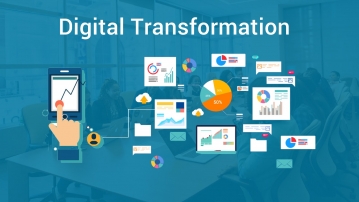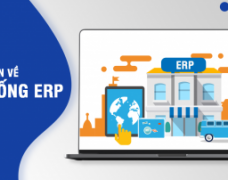 17 May, 2018
17 May, 2018
4 Mistakes to avoid when using ERP_ Part 2: Connectivity
Right from the initial selection step can cause dangerous errors when applying the ERP system. In Part 2, we will continue to discuss the errors that can occur when implementing ERP. That is connectivity.
Investing in any full-fledged trading system is more of a challenge than you might imagine. It’s complex enough to require more than the knowledge you currently have. Even in the very first step, the selection process, there are already four controversial factors: reliability, speed, evaluation, and complexity.
Next, in the implementation process, one thing that is often overlooked is the connectivity of the cloud systems.
1.Ignore the connection of ERP
Connectivity and bandwidth scalability are particularly important with an ERP system, which, unlike the premise version, requires only moderate attention. The reason is because the ERP system relies entirely on outside processing to get the job done.
Each step of development on the system requires higher ERP connectivity, and this means more budget requirements for the development steps of your business. If your organization does not pay attention to ERP connectivity, it will be dangerous because it will consume financial and human resources for what happens.
2.Processes run and launch first
Before launching the ERP system, bandwidth expansion requirements can be minimized and pre-checked. During this stage, it is important to carefully measure the goal by dividing total power by reliability, rather than focusing on maximizing processing power.
However, once the pre-launch phase is complete and the business is ready to grow, increased bandwidth becomes necessary. Unfortunately, many ERP project managers tend to forget this precept, thus ignoring it.
As a result, ERP performance will suffer to the same degree of manager distraction. This failure can lead to over-budgeting, as well as disrupt all support and training incentives from the business, thereby creating additional difficulties at later stages.

3. Anticipate bandwidth requirements
When businesses have done all they can to solve the problem and it’s still not working, it may be necessary to upgrade bandwidth expansion. Most ERP vendors offer reasonable extension fees, as long as the quota is not out of bounds of the contract. However, if the enterprise does not accurately predict the bandwidth requirements of the ERP system, the costs incurred are often very high and can cause the organization to spend more than expected.
This led to the fact that businesses started measuring bandwidth many years ago. Currently many ERP vendors offer reasonable prices for bandwidth expansion. That is why managers need to pay attention to this potential aspect by studying basic bandwidth types and upgrading based on long-term needs.
Of course, all of this requires organizations to implement prudent plans, backed by risk management to ensure that the ERP system continues to function and prove effective. In particular, being able to regularly measure and test performance is essential in any management approach adopted, otherwise, the connectivity of ERP will cause sudden limitations, damaging business efficiency.


















